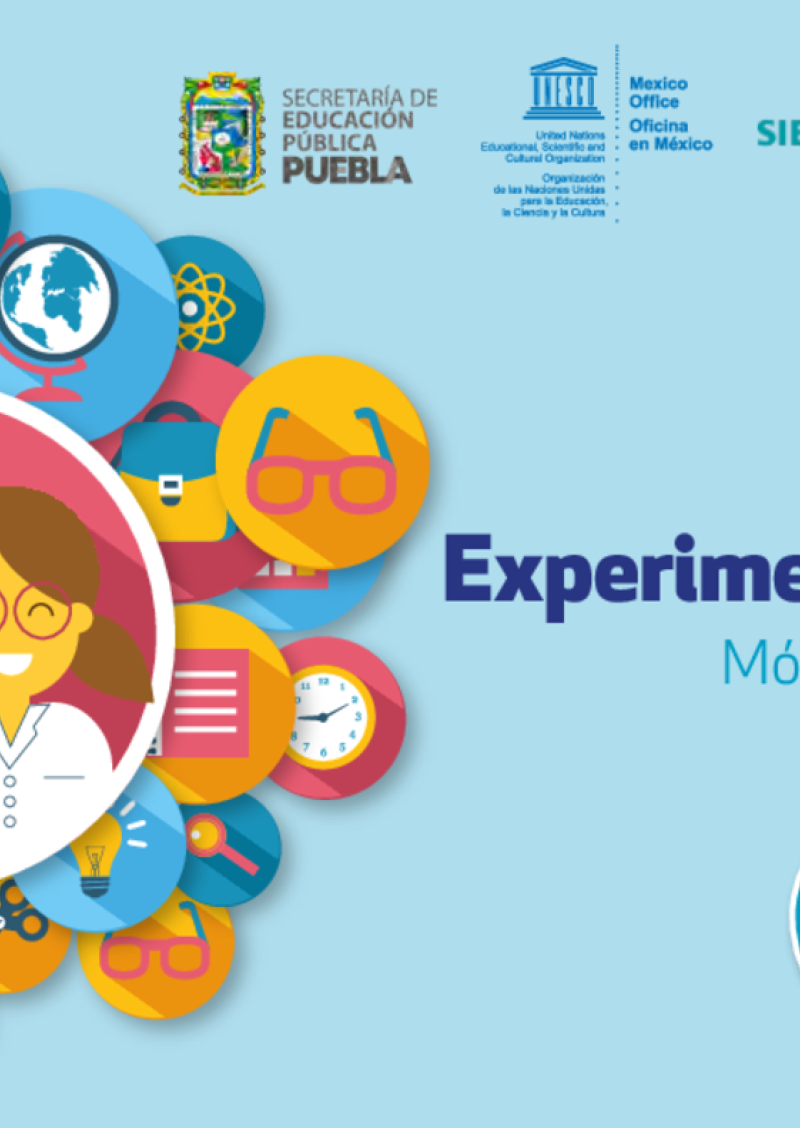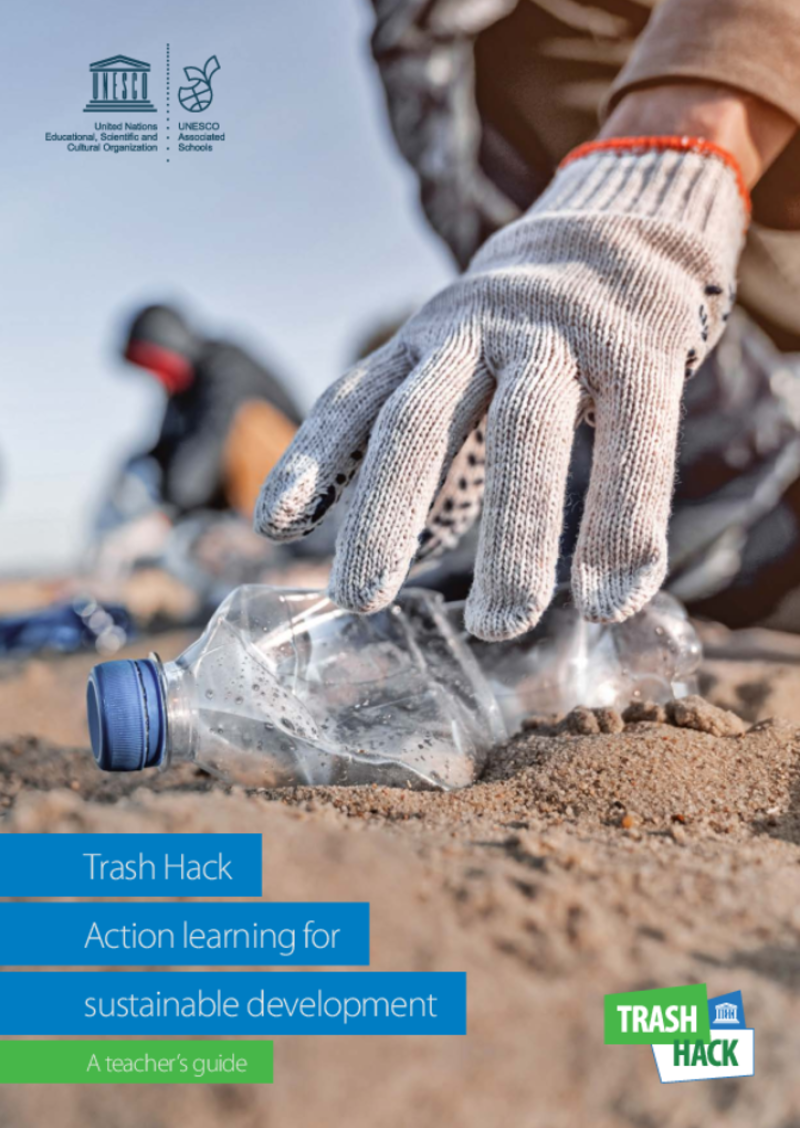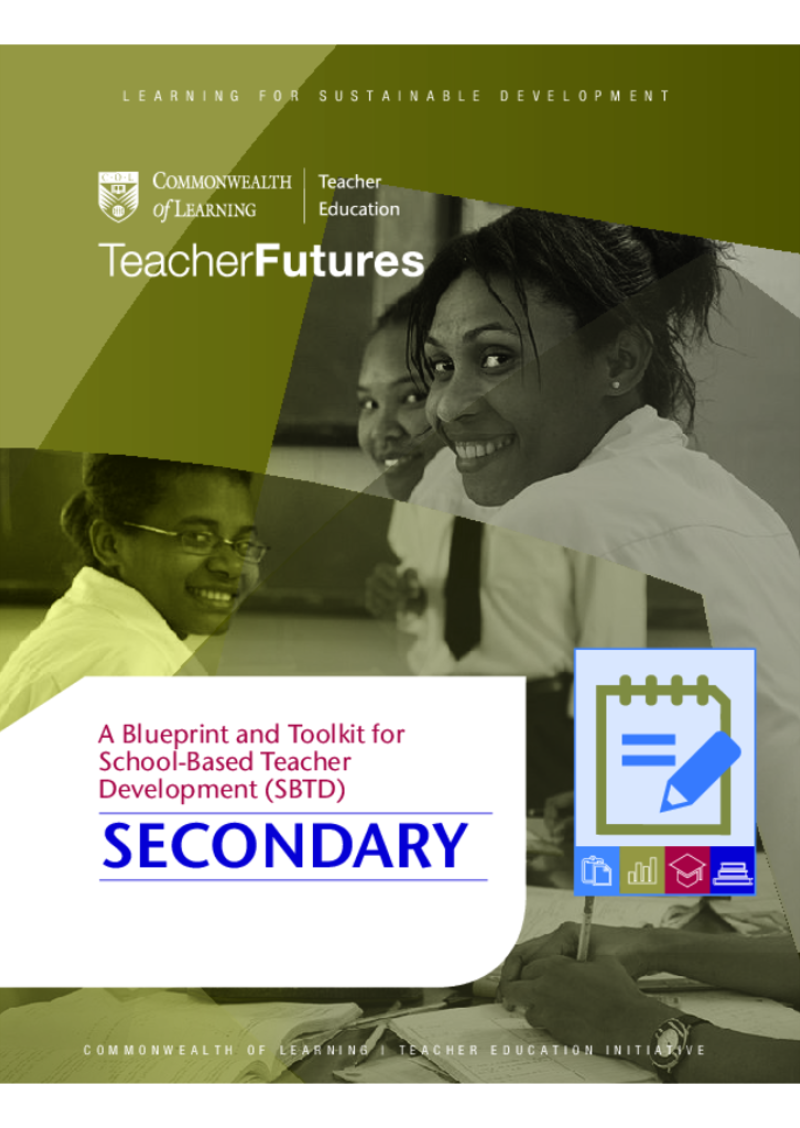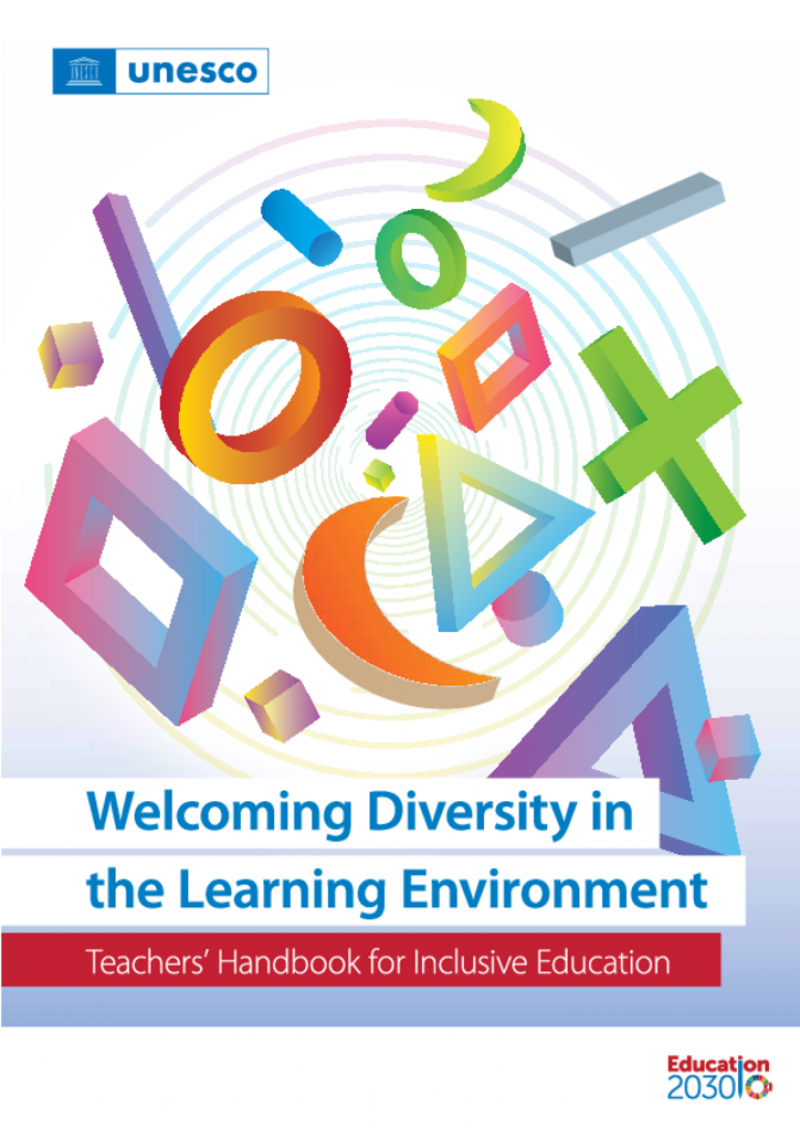Centre de Ressources pour les Enseignants
Affichage de 1 à 20 sur 32
Ciencias de la computación para el aula - Manual para docentes (Primer ciclo primaria)
Este recurso incluye secuencias didácticas con actividades para realizar con los alumnos, así como fichas imprimibles con ejercicios. También contiene todas las instrucciones necesarias para que el docente pueda acompañar a los alumnos en la realización de estas actividades. El objetivo de estos recursos es enseñar a niñas y niños el funcionamiento de los computadores y las tecnologías digitales. Si este recurso ha sido concebido específicamente para el sistema educativo argentino, también se puede adaptar a otros contextos educativos hispanófonos. Se realizaron manuales similares para secundo ciclo de primaria, y ciclo secundario, que se podrán encontrar en este enlace.
Experimento 3+ módulo: Salud - Guía de trabajo para docentes de preescolar
Esta guía, elaborada en el marco de un proyecto con la Oficina de la UNESCO en México para desarrollar la enseñanza de la ciencia a nivel preescolar, propone actividades y experiencias científicas para realizar en el aula. Incluye medidas de seguridad que se deben observar y demás instrucciones necesarias. Este módulo se centra en la temática de la salud (conocimiento del cuerpo humano, etc...).
Experimento 3+ módulo: Medio Ambiente - Guía de trabajo para docentes de preescolar
Esta guía, elaborada en el marco de un proyecto con la Oficina de la UNESCO en México para desarrollar la enseñanza de la ciencia a nivel preescolar, propone actividades y experiencias científicas para realizar en el aula. Incluye medidas de seguridad que se deben observar y demás instrucciones necesarias. Este módulo se centra en la temática del medio ambiente (ciclo del agua, contaminación, etc.…).
Experimento 3+ módulo: Energía - Guía de trabajo para docentes de preescolar
Esta guía, elaborada en el marco de un proyecto con la Oficina de la UNESCO en México para desarrollar la enseñanza de la ciencia a nivel preescolar, propone actividades y experiencias científicas para realizar en el aula. Incluye medidas de seguridad que se deben observar y demás instrucciones necesarias. Este módulo se centra en la temática de la energía (producción de energía, objetos conductores etc.…).
Global citizenship education in a digital age: teacher guidelines
This publication has been designed both for new and experienced teachers, as well as other professionals working in non-formal education settings that engage with upper primary and secondary students.
Purpose:
1.By using principles of GCED, digital citizenship, and media and information literacy, the guidelines aim to build the capacities of teachers to prepare learners to understand the implications of global and digital transformations on education, and to build opportunities to practice ethical and responsible behaviours in physical and digital environments. They provide guidance on tapping into the positive potential of the digital transformation, including through new access to information, possibilities of connection, and the creation of tailored content.
2. Build learners’ capacities to think critically about the influences and content that they encounter and engage in creating in physical and digital spaces.
3. Shape learners’ understanding of global challenges and how they can contribute to the Sustainable Development Goals (SDGs) through globally oriented digital citizenship.
Activité pour apprendre à créer une Ressource Éducative Libre, étape par étape
Cette formation, proposée par la chaire UNESCO RELIA de l’université de Nantes, vise à créer une Ressource Éducative Libre en quelques étapes simples. Elle se concentre sur les aspects pratiques tels que les droits d’utilisation, les licences disponibles et les méthodes de partage des ressources. Cet atelier permet de travailler en autonomie à travers des cours et des activités pratiques.
Boîte à outils sur la politique européenne de protection de la nature
Cette boîte à outils sur la protection de la nature aide les élèves à comprendre l'importance de la biodiversité et les menaces pesant sur la nature en Europe. Elle aborde les actions de l'UE pour protéger les écosystèmes et encourage les élèves à s'impliquer. Organisée en quatre modules, elle propose des activités interactives qui favorisent la réflexion, la collaboration, et la sensibilisation à la nature. Les élèves sont invités à explorer la nature, comprendre les enjeux de conservation, et développer des compétences pour contribuer à un monde plus durable. Des ressources complémentaires sont également fournies.
Boite à outils éducative pour lutter contre les stéréotypes sexistes à l'école primaire
Cet ouvrage est une boîte à outils destinée aux enseignants du primaire pour aborder l'égalité des genres et le secteur des transports avec les élèves de 6 à 7 ans. Basé sur un apprentissage actif, il propose des grilles d’auto-évaluation pour les enseignants, ainsi que des activités pédagogiques sur les stéréotypes sexistes et les métiers dans le transport. L'objectif est de montrer aux élèves que les carrières dans ce domaine sont accessibles à tous, sans distinction de genre. L'enseignant y trouvera également les supports nécessaires à la réalisation des activités.
Trash hack action learning for sustainable development: a teacher's guide
This short guide provides teachers with action-based approaches to address waste and trash management for sustainable development. It contains infographics and factsheets, inspiring initiatives taken by youth all around the world and activities that can be implemented in class or outside, over one day or several class sessions.
Media and information literate citizens: think critically, click wisely!
This pioneering curriculum presents a comprehensive competency framework of media and information literacy (MIL) and offers educators and learners structured pedagogical suggestions. It features various detailed modules covering the range of competencies needed to navigate today's communications ecosystem. This resource links media and information literacy to emerging issues, such as artificial intelligence, digital citizenship, education, education for sustainable development, cultural literacy, and the exponential rise in misinformation and disinformation. With effective use of this media and information literacy curriculum, everyone can become media and information literate as well as peer-educators of media and information literacy.
This UNESCO model MIL Curriculum and Competency Framework for Educators and Learners is intended to provide education systems in developed and developing countries with a framework to construct a programme enabling educators and learners to be media and information literate. UNESCO also envisions that educators will review the framework and take up the challenge of participating in the collective process of shaping and enriching the curriculum as a living document. The first edition and this second edition of the MIL curriculum have benefited from several series of collaborative and intercultural expert debates and recommendations. The curriculum focuses on required core competencies and skills which can be seamlessly integrated into the existing education system without putting too much of a strain on overloaded education curricula.
The target groups for the curriculum are essentially educators and learners. Educators and learners are understood in the broadest sense of the terms to include teachers at the secondary and primarily tertiary levels, persons involved in training or learning on all forms in NGOs, CSO, community centers, the media, libraries, online or offline. Given that the curriculum was developed with adaptation in mind, it can be used by various stakeholders interested in the field of MIL. Users may need to adapt the content to make it more relevant or accessible to specific target groups. The curriculum is also relevant to government officials and ministries, and other social and international development organizations.
Assistive Technologies: Inclusive Teaching Guidelines for Educators
Assistive technologies encompass tools and services designed to enhance learners' independence, participation, and success, helping them reach their full potential. This guide explains how educators can use assistive technology to create an inclusive environment that supports diverse learning styles and information processing. It introduces various assistive technologies that cater to individual learner needs, helping them overcome challenges. Educators should view assistive technologies as resources for all students, integrating them into the classroom to ensure widespread benefit and minimize the risk of stigmatization.
Blueprint and Toolkit for School-Based Teacher Development: Secondary
Created by Bob Moon, this Blueprint and Toolkit offers guidance and resources to support a 12–15 week program. It provides a detailed framework that can be tailored to suit the specific needs of a country, region, district, or school. Aimed at institutions looking to strengthen school-based teacher development (SBTD) to enhance school performance and improve student achievement, this resource is available as Open Educational Resources (OER), making it accessible to policymakers and those involved in implementing teacher development systems.
"Section 4: The Teacher Toolkit: Secondary" is organised around ten key questions. In responding to each question, you will find general commentary on the issues involved and activities that you can try out with your classes. There are also some descriptions of other teacher’s experiences to provide further guidance for you. The accompanying Key Resources should be used alongside the Blueprint and Toolkit when working through each question. The most relevant Key Resources in each case are listed at the beginning of each question.
Enseigner et apprendre avec le patrimoine vivant : Kit de ressources pour les enseignants
Ce kit de ressources comprend plusieurs éléments qui fournissent aux enseignants des informations sur le pourquoi et le comment de l'intégration du patrimoine vivant dans leurs activités scolaires. Il a été développé dans le cadre de l'initiative UNESCO-UE sur le patrimoine culturel et l'éducation, à l'occasion de l'Année européenne du patrimoine culturel en 2018. Il s'appuie sur des projets développés par des enseignants de 10 pays dans différentes matières.
How to Train 21st Century Teachers
Magdalena Brier, Managing Director at ProFuturo speaks with Mary Burns, ICT and teacher training specialist, about technology, education, teachers and the future. They delve into questions such as what skills a teacher must have to teach with technology, or what are the main obstacles that they encounter when trying to do so.
Watch this video to know more about the future of digital education and to listen to key advices on how to use technology in the classroom provided by Mary Burns who has a 40 years’ experience on teacher training.
Teaching to prevent atrocity crimes: a guide for teachers in Africa
This is UNESCO's first resource with a regional focus on teaching to prevent atrocity crimes. It was developed with the United Nations and in partnership with the UNESCO International Institute for Capacity Building in Africa (IICBA). The guide was informed by exchanges with African stakeholders and advisors and tested through a piloting exercise with African teachers and students. It provides principles for teachers to consider in facilitating learning and constructive discussions with their students.
ETF READY model
The European Training Foundation's READY model (Reference model for Educators' Activities and Development in the 21st century) offers a structured way to identify the professional practices and development needs of the 21st century educators.
Welcoming diversity in the learning environment: teachers' handbook for inclusive education
This teachers' handbook is intended to serve as a practical resource to help teachers and teacher educators to gain understanding of the multiple issues of inclusion in their day-to-day work and acquire competencies that facilitate inclusive pedagogy. The handbook is comprised of nine modules – each of which presents the conceptual discussion of key topics related to inclusion and diversity and features some promising case studies, instruments and approaches. It also provides a framework for ensuring learning continuity in the wake of crises and emergencies such as the COVID-19 pandemic, and deals with a range of topics aimed at building the capacities of teachers and teacher educators for recovery and resilience in education systems in the COVID-19 context.












